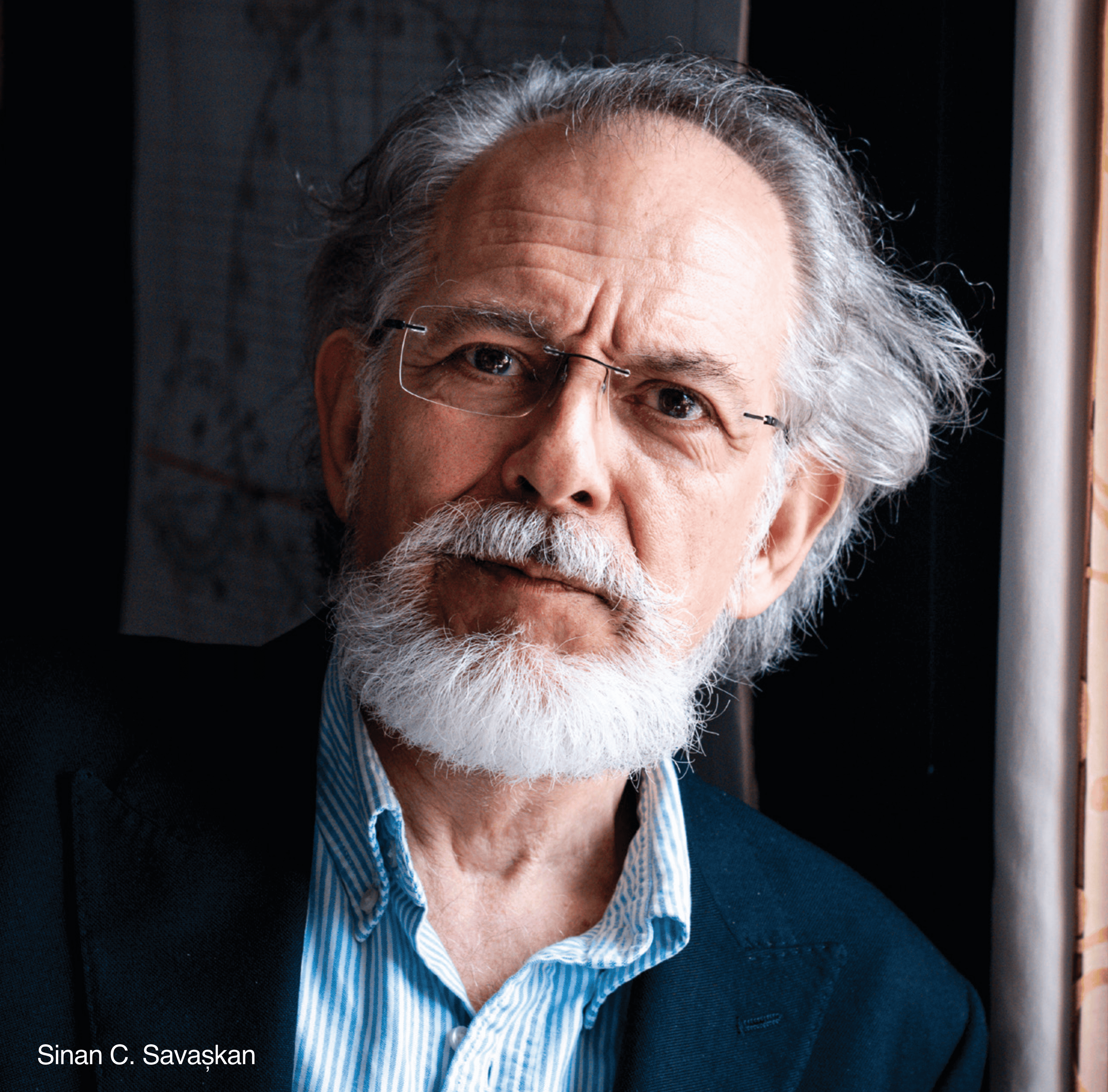Sinan C. Savaşkan Recordings
Born in 1954, Sinan Carter Savaşkan works and lives in London, where he has been active for many years as a composer, lecturer and teacher of composition. His music has been commissioned, performed and broadcast in over thirty countries by some of the foremost performers, including the BBC Symphony Orchestra, BBC Philharmonic, John Harle and Myrha Saxophone Quartet, Lontano Ensemble, Orchestra of the S.E.M. Ensemble directed by Petr Kotik, Balanescu Quartet, Smith Quartet, Gemini Ensemble, Tim Brady, Sydney Alpha Ensemble, Trio Basso (Cologne), Ensemble Contemporary α (Tokyo), Contemporary Arts Ensemble (London) with Zsolt Nagy, Cambridge New Music Players, and the pianist Yvar Mikhashoff, as well as several performances of organ and other ceremonial music in Westminster Abbey.
Important early support came from the MusICA series curated by Adrian Jack at the ICA (Institute of Contemporary Arts), which commissioned and premiered the first four works in the 360-module cycle Many Stares through Semi-Nocturnal Zeiss-Blink in 1978. In 1990, Savaşkan won the Arts Council of Britain’s Dio Fund Award for his saxophone quartet The Street. His Three Dances for orchestra, Op.31 – three dance interludes from the work-in-progress Venom, an opera – were selected by the Society for the Promotion of New Music as featured work for the Manchester Composers’ Forum in 1997. His Symphony No.2 ‘Age of Analysis’, commissioned by the BBC Symphony Orchestra’s Composers’ Forum in 1997 and premiered under Martyn Brabbins, was featured at the UNESCO International Rostrum of Composers, Paris in 2002, leading to broadcasts around the world, and later – during the Covid-19 lockdowns – received more votes than any other symphony in the popular Twitter competition ‘World Cup of British & Irish C20/21 Symphonies’, only to lose in the final by 49% to 51% to Tippett’s Symphony No.1.
The world premiere in New York of Symphony No.3 ‘La Rosa Enflorece and the English Cadence’ (commissioned and premiered by Petr Kotik and his S.E.M. Orchestra) led to Savaşkan being selected in 2000 as recipient of the Foundation for Contemporary Arts’ prestigious Grants to Artists Award–the first British composer to receive this award. More recently, in 2015, he won a BASCA British Composer Award (later renamed the Ivors Classical Awards) in the Large Chamber category for Many Stares through Semi-Nocturnal Zeiss-Blink – Module 30.
He has written much ballet and incidental music, as well as music for film. In 2004 he was music director/composer for the University of Cambridge’s renowned biannual Greek Play, an original-language production of Sophocles’ Oedipus Tyrannus (Oedipus Rex). His score for the feature film The Invisible Life (A Vida Invisível, dir. Vitor Gonçalves) was highly commended at the 2013 Rome Film Festival and won the prize for Best Original Music in the 2015 CinEuphoria Awards.
Since 1977, Savaşkan has worked on a personal constructivist compositional methodology, whereby what he calls Circular Functions inform the direction and organisation of all aspects of a given work. In brief, the structural parameters of his music (including tonality, harmony, melody, durations, timbre and dynamics) are integrally related to its architecturally conceived formal proportions, which are, in turn, based on the behaviour and properties of sound and its circular characteristics. This method has developed in a parallel, but entirely separate, manner from that of the composers of the French spectral tendency, with which it exhibits a number of overlaps in the use of overtone series, difference/summation tones, and microtonal tunings.
An original feature of Savaşkan’s works from the early 1980s onwards has been the coexistence of strict construction with, or its disruption by, seemingly contradictory, extempore elements (for many years he was an improvising musician, and he was also heavily influenced by the English experimental school of composers – including studies, performances and consultations with Cornelius Cardew and John White, and involvement in the London Musicians’ Collective).
Savaşkan is currently Composer in Residence for the Octandre Ensemble. A major new work composed for that ensemble will appear on Métier Records later in 2025, funded by an award from the PRS for Music Foundation’s Composers’ Fund.
His media and stage works are published by Faber Music, London.













